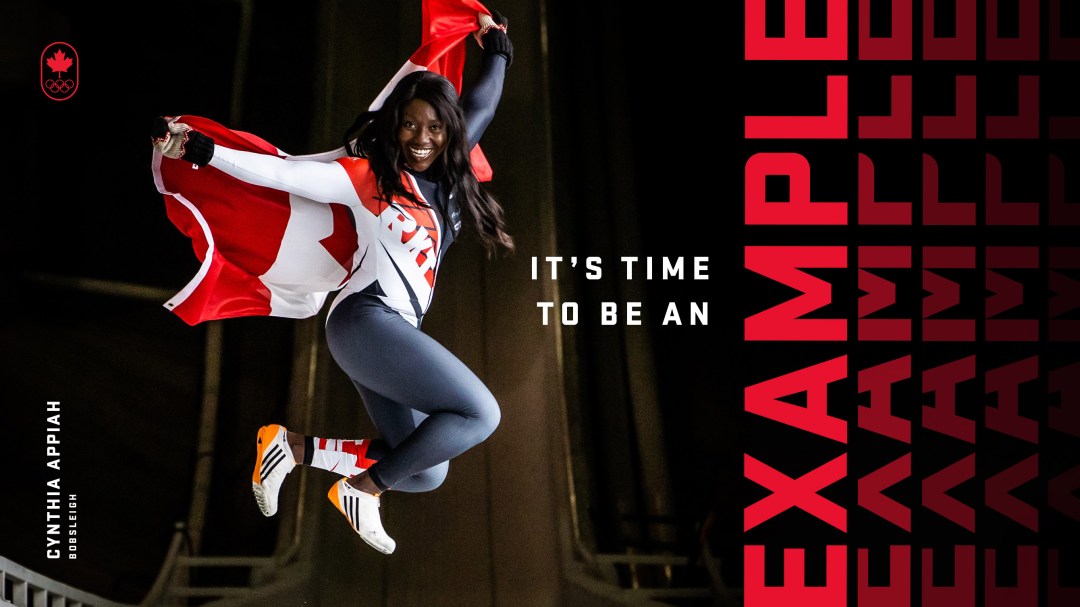Cynthia Appiah: A desire to be not just the best, but also the best representation
My passion for sport is constantly evolving.
I got my first taste of competitive sport in Grade 6 when I tried out for my school’s track and field team.
I had played some team sports in the past, but it had more to do with my friends joining than a love for the sports. Track and field was different, however, as it put me into a unique mindset. Win or lose, it was all on me.
This test of ability intrigued me more than any team sport ever could. My passion was to be the best in sprinting (100m and 200m) and in throwing (shot put). I was too young to know that there was more to sport than this. I thought that being the best was the end all, be all of sport.
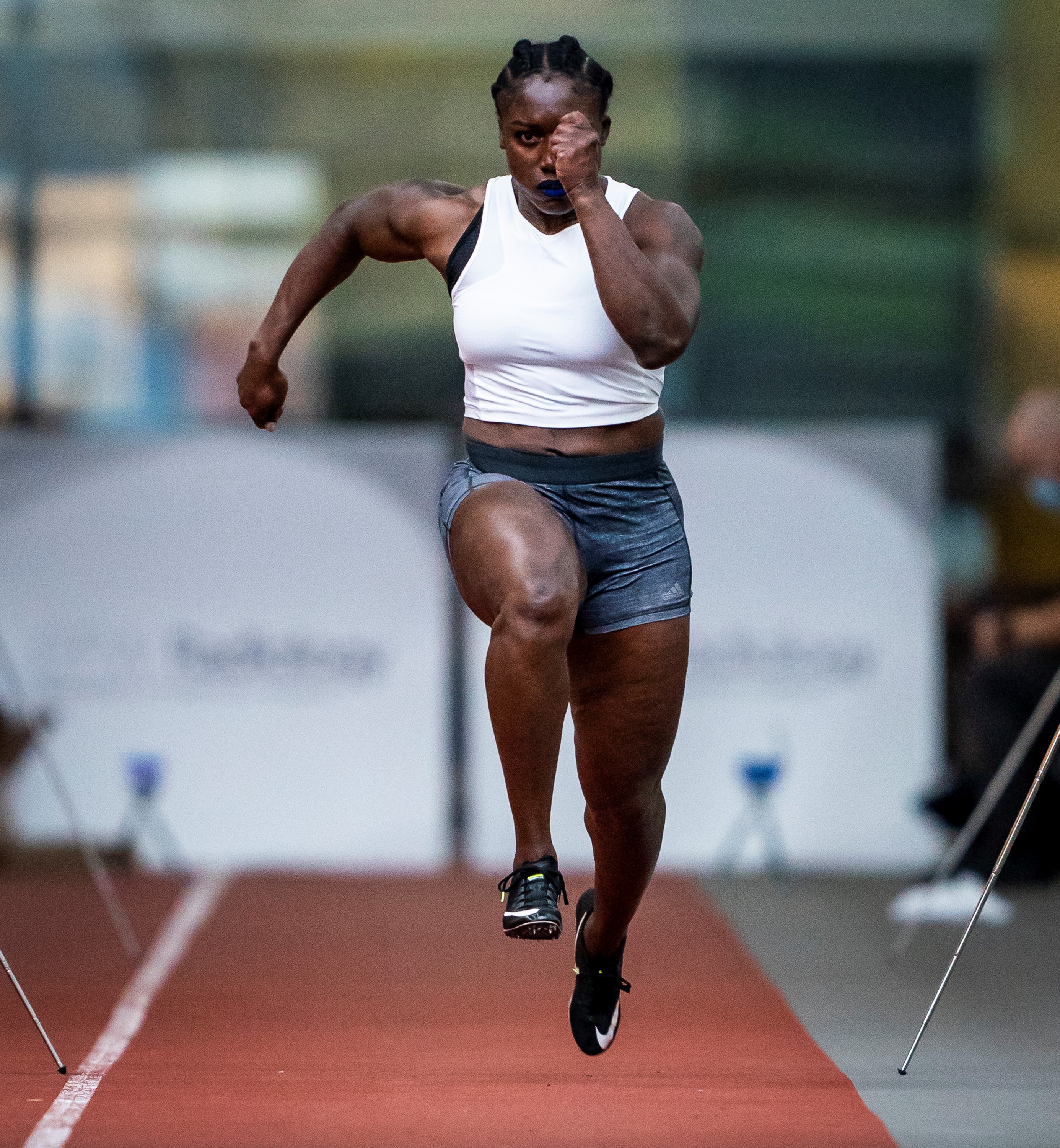
Photo courtesy Dave Holland
Through high school and university, I continued to excel in throwing (adding the hammer and weight throws into my repertoire) and my passion was to still be the best. Despite the many medals I won throughout my collegiate career at York University, I felt like something was missing. I got to a point where I wasn’t enjoying sport for what it was anymore. I had hit a rut (one of many) and my go-to mantra wasn’t helping me overcome my mental block. I knew that making it to the Olympic Summer Games wasn’t in the cards for me. I needed a change and that change came in the form of bobsleigh, which presented new challenges.
As a thrower for the better part of ten years, I didn’t need to focus on nutrition. But with bobsleigh I had to get my weight down from 196lb (89kg) to 170lbs (75kg) to be able to slide without getting my team disqualified. From 2013 to 2015, I worked on my diet in addition to getting faster and stronger and I finally made the national team in the fall of 2015.
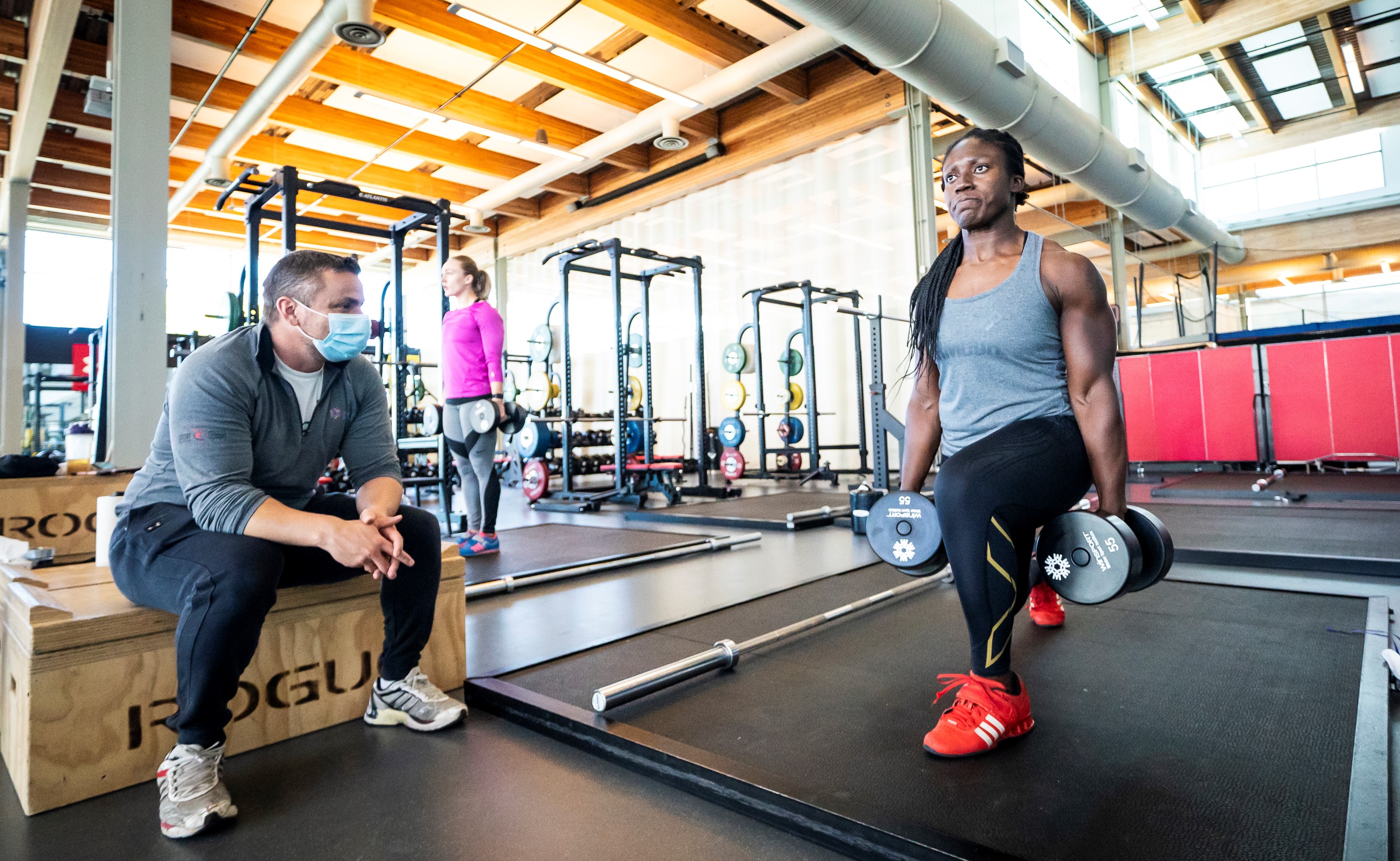
Photo courtesy Dave Holland
In a relatively short three years, I worked my way up to be the top brakewoman in the program and was ready to race at my first Olympic Games at PyeongChang 2018. However, over the course of the Olympic season, circumstances beyond my control began to manifest and I ultimately found myself sitting on the sidelines as an alternate.
The only way I would compete for Canada now was in the event of an injury to one of the racing athletes. My dream had been taken away from me and there weren’t enough encouraging words or positive thoughts to take me out of the dark space that had been created. At that point, I decided that it was time to put an end to chasing my Olympic dreams. I couldn’t cut it in making it for the Summer Games and now was close enough to kiss the Winter Games and still couldn’t make it.
I had convinced myself that it wasn’t meant to be and that I was, effectively, a failure.
For fans watching from home, the lights, glitz, and glamour of the entire spectacle that is the Olympic Games instills imagery of hardworking athletes toiling away for a chance to do their country proud – and this is true. But for every athlete who gets their moment in the sun, there are more athletes in the background, holding the system up without much recognition. They almost function like a shadow. That’s what I felt like for three weeks in South Korea in the winter of 2018.
I felt estranged from my own team. I wasn’t able to stay in the athlete’s village, instead living at a nearby hotel. As an alternate brakeman, my role was to take the lion’s share of the training runs to keep the race brakeman rested. Every day was a hard push day to give the pilots as close to a race day push as possible.
I was there to support the team and make sure that they were in a good mental space even though I was in anguish. Fake a smile and make sure you don’t show your teammates how upset you are because you’re here for them now, not for yourself. Even so, my teammates could tell I was frustrated and hurt with what felt like a demotion. I hated every second of it. I felt like a great injustice had been done but I was powerless to do anything about it.
After PyeongChang, I pretty much made the decision to quit sport entirely. I may have gone back to throwing as a recreational athlete, but the idea of competition put a sour taste in my mouth. It wasn’t until the insistence of a few key people – namely my teammates Neville Wright and Lascelles Brown, former brakewoman Shelley-Ann Brown, and coaches Lyndon Rush and Quin Sekulich – that I began to entertain the thought of trying again.
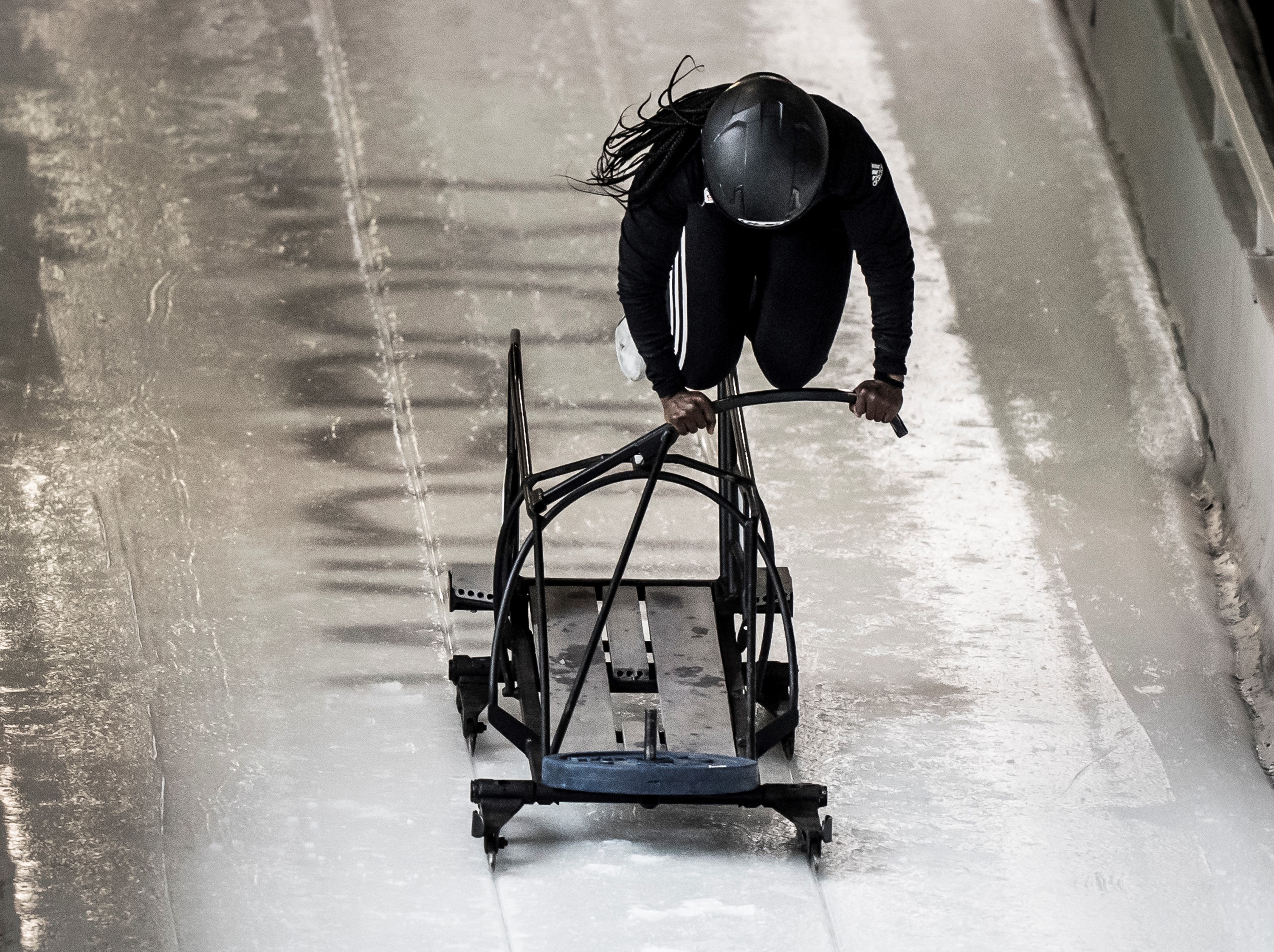
Photo courtesy Dave Holland
It took all five to convince me that my time in bobsleigh wasn’t over, that they understood my pain, and that they knew that if I packed it up, I would have been left wondering “what if” for the rest of my life. They even suggested that I try out for the pilot school in Lake Placid, NY to see if that would spur my interest in bobsleigh again.
I didn’t want to admit it then, but they were right. I didn’t want to be left with all of these what ifs: What if I was able to become a pilot? What if I was good at it? What if I came back and made it this time?
But along with those inspiring what ifs, came the negative what ifs: What if I’m bad at it? What if I get “screwed over” again? What if I spend the next four years putting my life on hold again only for me to not make it again?
I had to put those thoughts aside and take the driving school for what it was: a chance to love training and competing in sport again. Once I came home from the three-week camp, I made the difficult decision to put life on hold for sport once again and make a second attempt at the Olympic Games, this time as a driver.
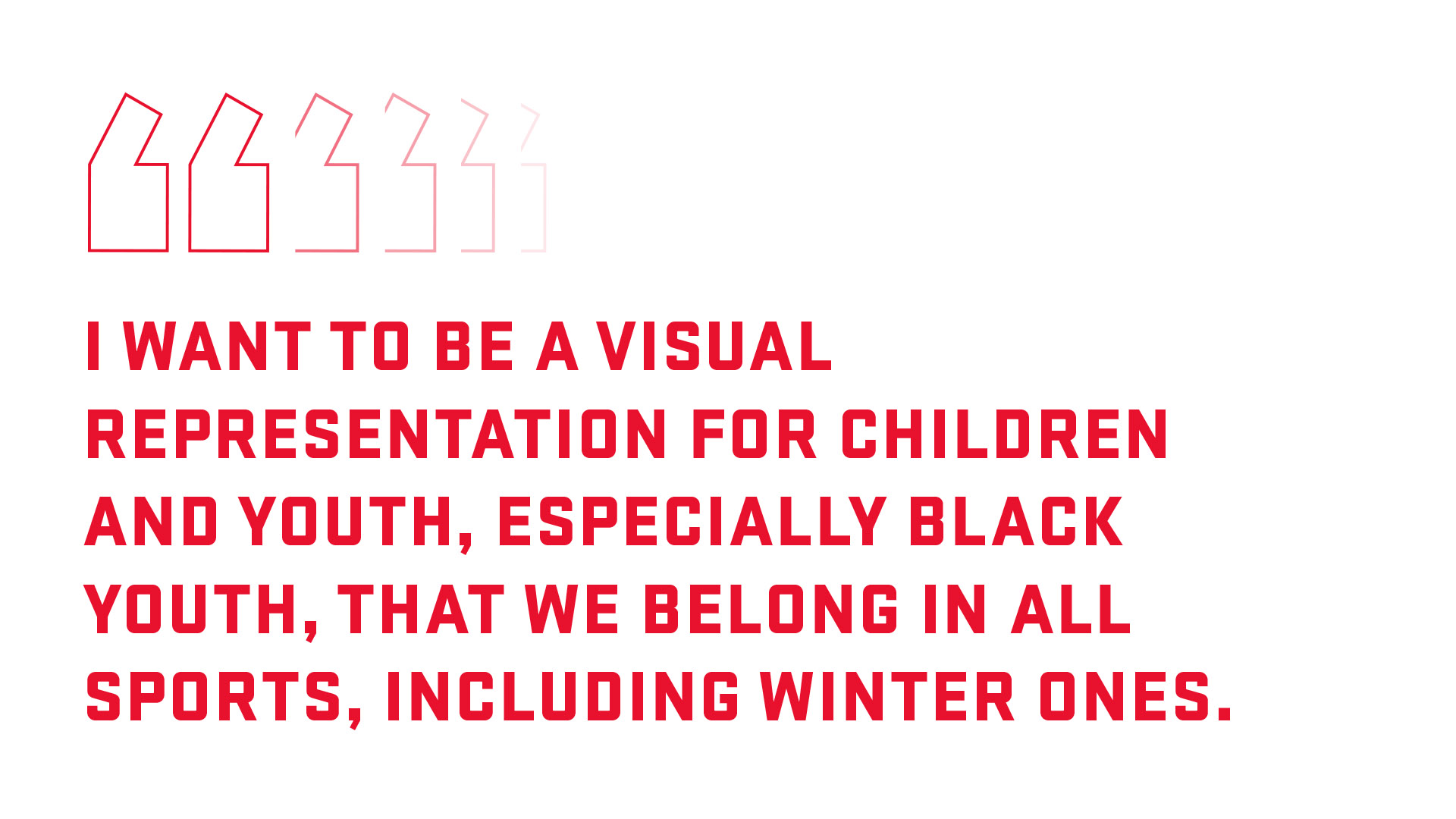 Being Black in an overwhelmingly white sport is an interesting space to navigate. There are still some negative sentiments about what Black people can and can’t do in this sport. Some will openly state their opinion as facts and deny any racial implication behind them. Sadly, there are those who hold onto such idiotic and archaic beliefs in bobsleigh, particularly that Black people are innately bad pilots.
Being Black in an overwhelmingly white sport is an interesting space to navigate. There are still some negative sentiments about what Black people can and can’t do in this sport. Some will openly state their opinion as facts and deny any racial implication behind them. Sadly, there are those who hold onto such idiotic and archaic beliefs in bobsleigh, particularly that Black people are innately bad pilots.
An analogy that often gets tossed around to help those not familiar with bobsleigh is the belief in football that Black players can’t be good quarterbacks, that such athletes lack “intelligence” on the field. That sentiment is held deep within certain circles and, at times, rears its ugly head into the limelight. Just this past summer, Team USA pilot Elana Meyers Taylor wrote of a sled manufacturer who “refuses to sell to Black pilots” and was quoted as saying “if I wanted to see a monkey drive a sled, I’d go to the zoo.” In response, the International Bobsleigh and Skeleton Federation set up a task force to deal with cases of reported discrimination.
When it comes to winter sports, bobsleigh is definitely one of the more diverse out there. But there is still a glass ceiling of sorts.
Intentional or not, most athletes start their bobsleigh careers as brakemen. Relatively speaking, the cost of entry to bobsleigh is less for a brakeman and therefore it could be more lucrative to stay in that role. For various reasons, fewer athletes of colour make the jump from brakeman to pilot. One of the barriers is the lack of representation. You rarely see anyone who looks like you in the pilot seat, so many have no aspirations of switching.
However, others may have such aspirations and simply can’t. Intuition is strongly influenced by one’s environment and sometimes we create scenarios to believe that we can’t do something. So, until someone paves the way, you sometimes will create your own barrier.
Another barrier is financial as it is almost cost prohibitive to become a pilot. During your first two years in the front seat, you’re relegated to the lowest competition circuit and must earn your spot on the World Cup with points attached to performance. There is no prize money on these lower circuits. As a top brakeman, I had to make the decision to forego relative financial security to pursue this new goal of competing at Beijing 2022.
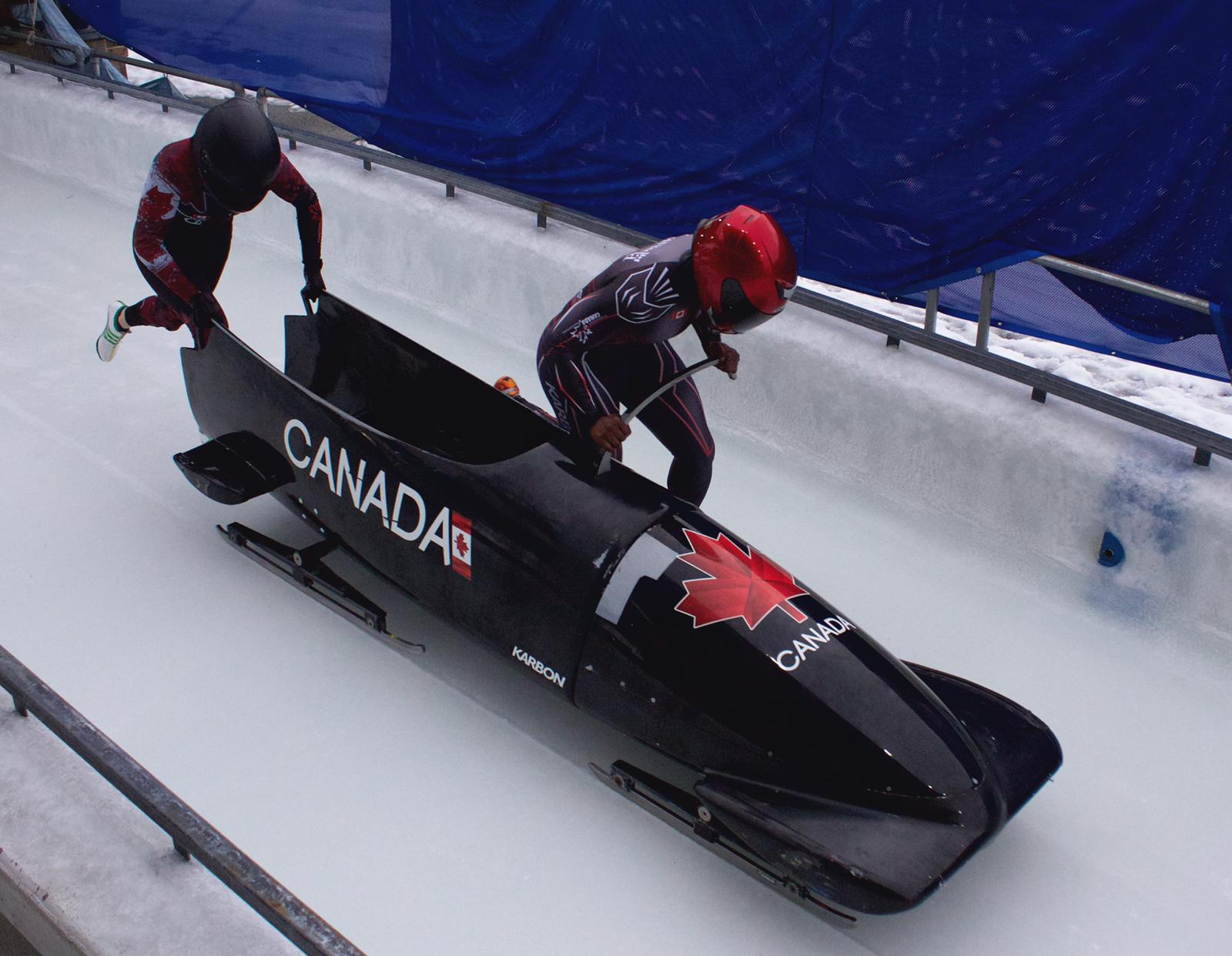
All that said, in the past decade the number of Black pilots has increased from zero at Vancouver 2010 to four at Sochi 2014 and PyeongChang 2018. Should I qualify for Beijing 2022, I could help bring the total to seven Black pilots (potentially two men and five women).
My passion in sport has definitely changed. I still want to be the best my sport has ever seen (and I fully believe I am capable of that), but I really want to be a representation of what Black athletes can do. I want to be a visual representation for children and youth, especially Black youth, that we belong in all sports, including winter ones.
The stereotype that Black people don’t do well in the cold needs to be shut down. The stereotype that Black people can’t be good bobsleigh drivers needs to be shut down. The stereotype that Black athletes can’t successfully lead a team needs to be shut down.
I’m ready to step into the spotlight and show the world what I can do with my passion.
Cynthia Appiah made her World Cup debut as a pilot in January 2020. In addition to the two-woman event, she also aims to compete in the Olympic debut of women’s monobob at Beijing 2022.

